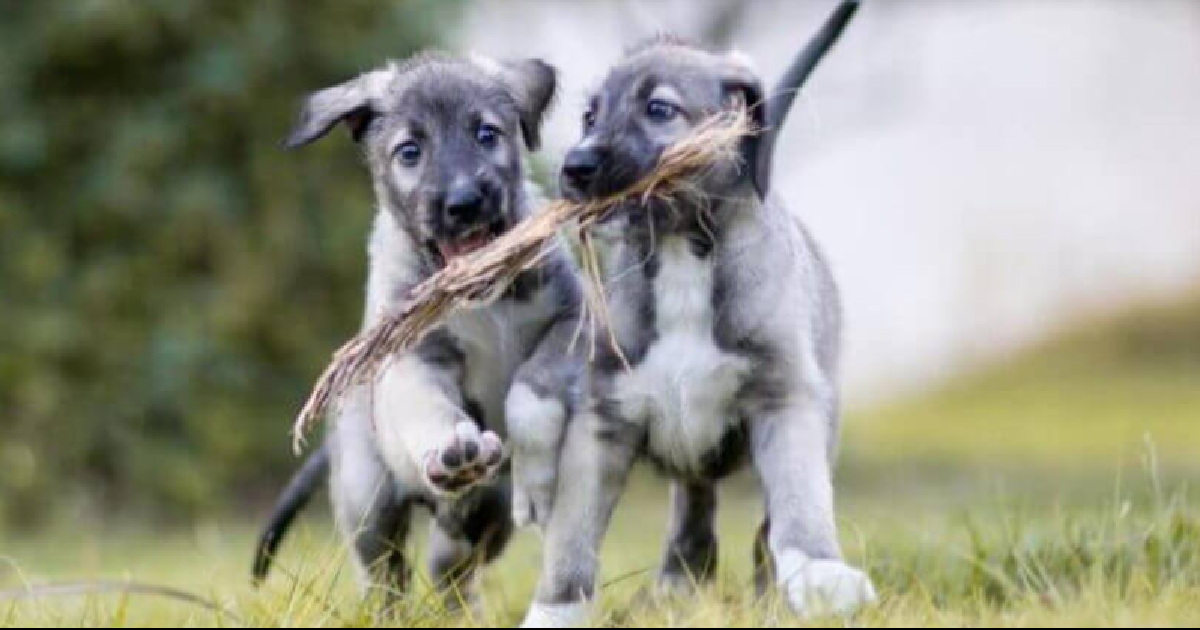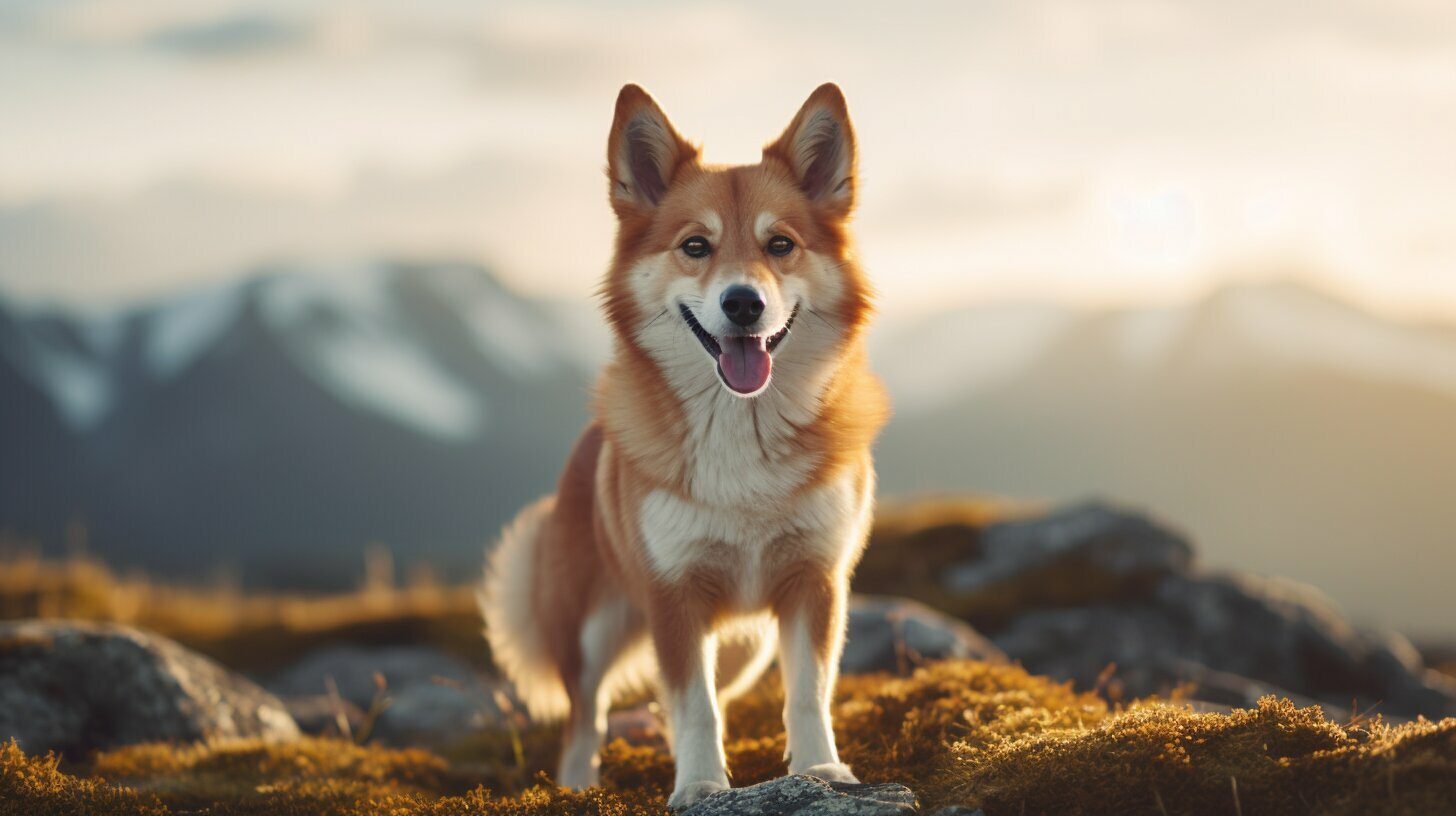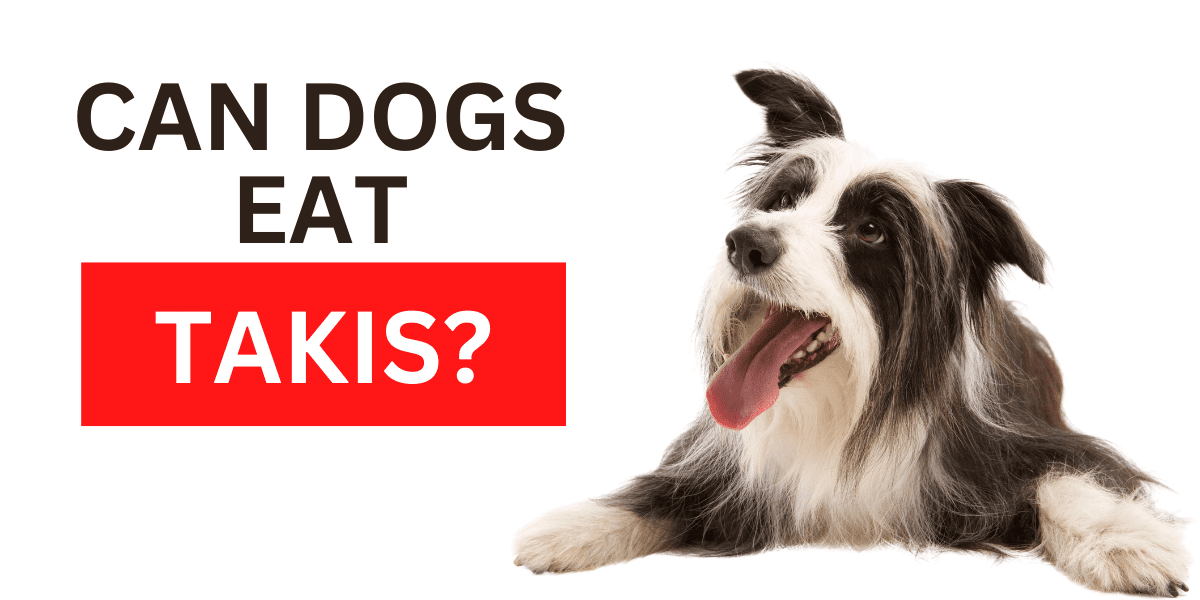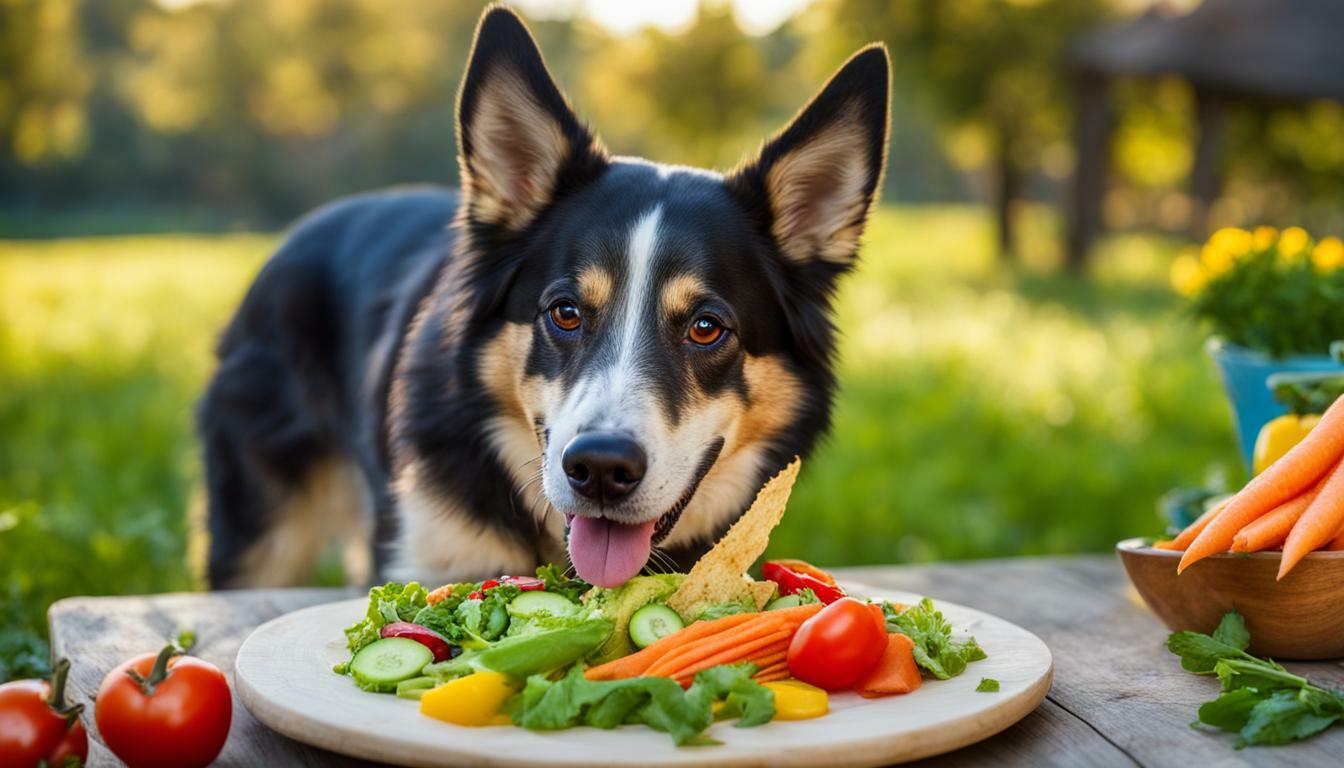Like humans, dogs can benefit from certain vegetables as part of a healthy diet. Cabbage is an excellent example of this – packed with vitamins and minerals and can help support your pup’s health. But how much cabbage can you safely feed your dog? In this blog post, we’ll explore the potential benefits and risks of providing your pup cabbage – so you can make an informed decision about what’s best for them.
Can Dogs Eat Cabbage?
Yes, dogs can safely eat green cabbage as a treat. Cabbage is a low-calorie, high-fiber vegetable, similar to other healthy vegetables such as green beans, brussels sprouts, and avocados. It can be a good choice for overweight dogs with digestive issues. It is also a good source of vitamins and minerals, including vitamin C, potassium, and folate.
However, like all foods, cabbage should be given to dogs in moderation. It is best to introduce cabbage gradually to your dog’s diet and to monitor your dog’s reaction to it. As with any new food, it is a good idea to speak with your veterinarian before giving cabbage to your dog.
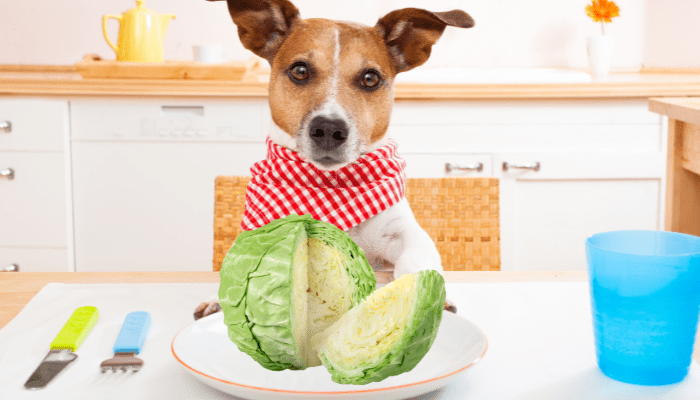
What is Cabbage?
Cabbage is a leafy vegetable belonging to the family of cruciferous vegetables, which includes broccoli and Brussels sprouts. It originated in Europe and is believed to have been domesticated around 600 BC. Cabbage looks like a round, leafy green head with layers of tightly wrapped leaves that vary from light to dark green. It has a mild flavor, which makes it popular for adding flavor to dishes without overpowering them.
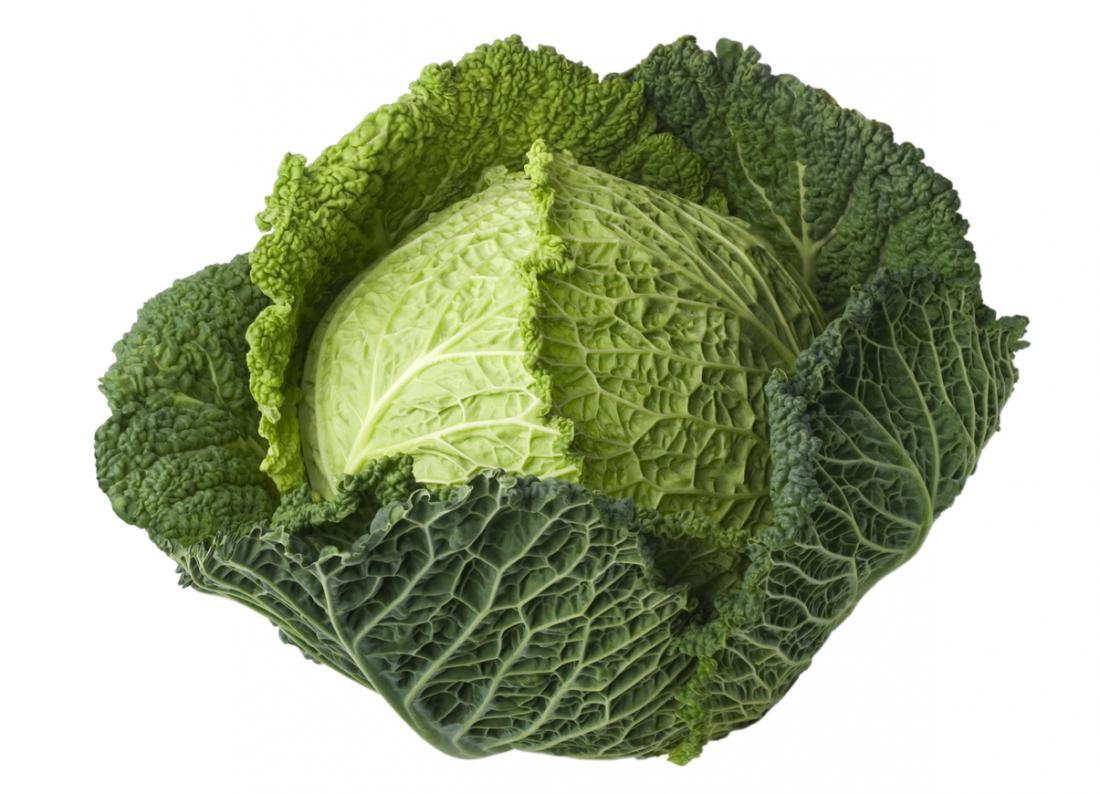
Nutritional Content of Cabbage
Cabbage is a nutritious vegetable with fiber and is low in calories. It is an excellent source of vitamin C, potassium, and folate and contains small amounts of other vitamins and minerals. One cup of raw cabbage (about 89 grams) contains:
- 25 calories
- 2 grams of fiber
- 48 milligrams of vitamin C (80% of the daily value)
- 107 milligrams of potassium (3% of the daily value)
- 56 micrograms of folate (14% of the daily value)
Cabbage contains other vitamins and minerals, including vitamin K, B6, calcium, and magnesium.
In addition to its nutritional benefits, cabbage is also a good source of antioxidants and has been shown to have anti-inflammatory effects. In addition, it has been linked to several health benefits, including reducing the risk of certain types of cancer and improving digestion.
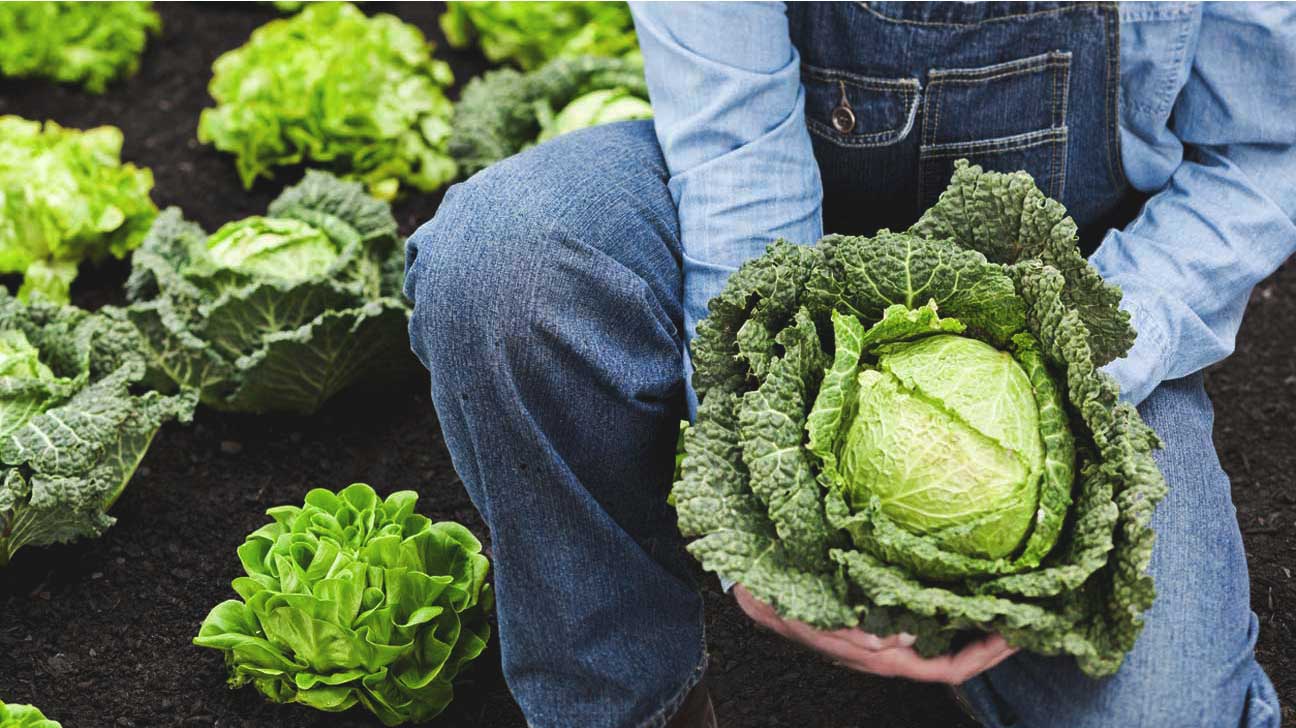
Is Cabbage Good for Dogs?
Can dogs eat cabbage? Green cabbage can be a healthy part of your dog’s diet. Cabbage is low in fat and calories but high in vitamins and minerals, making it an excellent source of nutrition for dogs. It also contains many antioxidants, which can help to boost the immune system. Ensure you don’t add salt or other seasonings to the cabbage before feeding it to your pup.
What About Puppies?
Cabbage can be a healthy treat for puppies, too. However, since puppies have sensitive stomachs and aren’t used to eating the same foods as adult dogs, it’s best to introduce cabbage in small amounts. Only provide a few pieces of chopped cabbage at a time, and ensure it is cooked before you give it to your pup. Keep an eye out for signs of indigestion or allergic reactions and adjust the amount accordingly
Safe Cabbage Parts to Feed Your Dog
Can dogs eat cabbage? Is it safe? Dogs can eat cabbage. It is safe to feed your dog most parts of cabbage as long as they are adequately prepared. Here are some safe cabbage parts that you can provide to your dog:
- Leaves: Cabbage leaves are the most nutritious and can be fed to your dog either raw or cooked. Make sure to remove any tough stems or outer leaves before serving them to your dog.
- Stems: The stems of cabbage can be fed to your dog either raw or cooked, as long as they are cut into small pieces.
- Heart: The heart of a cabbage, the central part of the vegetable, can be fed to your dog either raw or cooked. Make sure to remove any tough outer leaves before serving them to your dog.
It is important to introduce cabbage gradually to your dog’s diet and monitor your dog’s reaction to it. As with any new food, it is a good idea to speak with your veterinarian before giving cabbage to your dog.
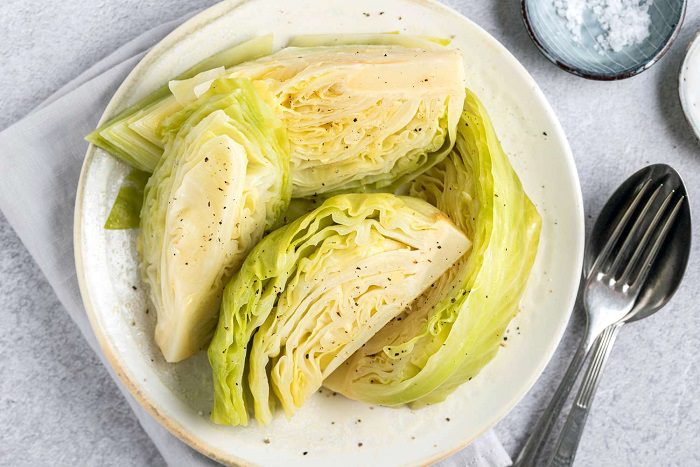
Why is Cabbage a Good Food for Dogs?
Fiberglass
First, cabbage is a good source of fiber, which can help to promote healthy digestion in dogs. Fiber helps bulk up the stools and can be helpful for dogs who are constipated or have diarrhea. It can also help keep your dog feeling full and satisfied, which can benefit dogs trying to lose weight.
Vitamins and Minerals
Second, cabbage contains vitamins and minerals, including vitamin C, potassium, and folate. These nutrients can help to support your dog’s overall health and well-being. Vitamin C, for example, is important for maintaining a robust immune system and keeping your dog’s skin and coat healthy. Potassium is important for maintaining healthy muscle function and regulating the balance of fluids in your dog’s body. Folate is important for producing red blood cells and supporting brain function.
Antioxidants
Finally, cabbage is a good source of antioxidants, which can help to protect your dog’s cells from damage caused by free radicals. Free radicals are unstable molecules that can contribute to developing chronic diseases, such as cancer. Antioxidants help to neutralize free radicals and can help to reduce the risk of chronic diseases in dogs.
How Much Cabbage Should a Dog Eat?
It is important to feed cabbage to your dog in moderation, as it is not a complete source of nutrition and should not be the main component of your dog’s diet. Cabbage should be treated as a supplement or a treat rather than a primary source of nutrition.
Generally, feeding your dog up to one cup of cabbage daily is safe. This is equivalent to about 89 grams of cabbage or about one-half cup of cooked cabbage. It is a good idea to introduce cabbage gradually to your dog’s diet, starting with a small amount and gradually increasing it over a few days. This will give you time to monitor your dog’s reaction to the cabbage and ensure it is well tolerated.
It is also important to remember that every dog is different, and the amount of cabbage safe for one dog may not be the same for another. In addition, some dogs may be more sensitive to cabbage than others, so it is always a good idea to speak with your veterinarian before introducing any new foods to your dog’s diet.
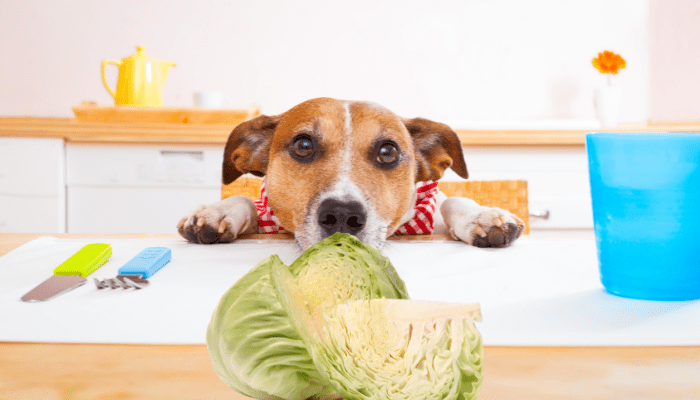
Dangers of Feeding Cabbage to Your Dog
Constipation
One potential danger of feeding red cabbage to your dog is constipation. Cabbage is high in fiber, which can help to bulk up the stools and promote healthy digestion in dogs. However, if your dog overeats cabbage, it can cause constipation by making the stools too complex and difficult to pass. If your dog is constipated, it may strain to defecate and have difficulty passing stools.
Excess Gas and Flatulence
Another potential danger of feeding cabbage to your dog is excess gas and flatulence. Cabbage is a cruciferous vegetable that contains a type of carbohydrate called raffinose. When raffinose is digested, it produces gas as a byproduct. Therefore, if your dog eats a large amount of cabbage, it may produce excess gas and may experience flatulence.
Hypothyroidism
Finally, some veterinarians have raised concerns about the potential link between cabbage and hypothyroidism in dogs. Hypothyroidism is a condition in which the thyroid gland does not produce enough hormones, which can lead to several dog’s health conditions. While the evidence is inconclusive, some veterinarians believe that cabbage may interfere with the absorption of thyroid hormones in dogs, potentially leading to hypothyroidism. However, more research is needed to confirm this link.
What’s the Best Way to Feed Your Dog Cabbage?
- Introduce cabbage gradually: It is a good idea to introduce it to your dog’s diet gradually, starting with a small amount and gradually increasing it over a few days. This will give you time to monitor your dog’s reaction to the cabbage and ensure it is well tolerated.
- Remove tough stems and outer leaves: Before serving cabbage to your dog, remove any tough stems or outer leaves. These parts of the cabbage can be complex for your dog to digest and may cause digestive issues.
- Cook or steam the cabbage: Cabbage can be easier for your dog to digest if it is cooked or steamed, therefore, home cooking is a must. This can help to soften the cabbage and make it more palatable for your dog. You could also cook cabbage along with other pet-friendly ingredients to make them tastier.
- Serve in moderation: Cabbage should be treated as a supplement or a treat rather than a main source of nutrition. It is important to feed cabbage to your dog in moderation, as it is not a complete source of nutrition and should not be the main component of your dog’s diet.
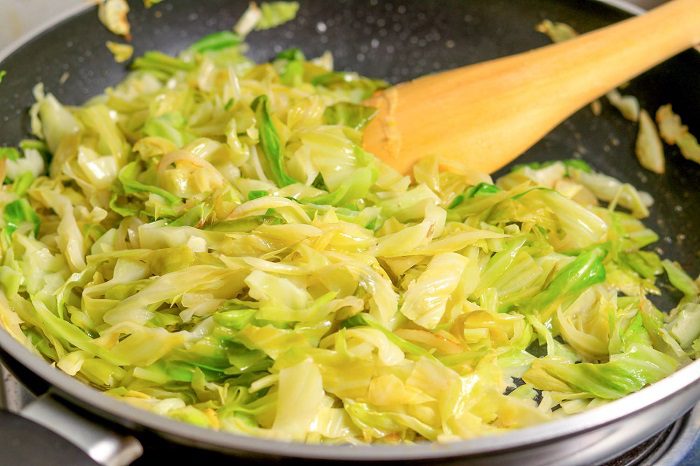
Final Thoughts
In conclusion, can dogs eat cabbage? While cabbage can make a healthy part of your dog’s diet, it is important to give it in moderation. Introduce small amounts of cooked cabbage to your pet and watch for any signs of indigestion or allergic reactions. Too much cabbage can cause constipation, excess gas, and flatulence. Finally, there may be a potential link between cabbage and hypothyroidism in dogs, though more research is needed to confirm this.
Frequently Asked Questions
Can dogs eat cabbage raw?
Yes, dogs can safely eat raw cabbage in moderation. Cabbage contains various vitamins and minerals that benefit your pup's health. However, it is important to remember that raw cabbage may upset stomach if eaten in large amounts or not correctly digested. Therefore, if you give your pup raw cabbage, it's best to serve it as part of a balanced diet and only in small quantities.
Can a dog eat cooked cabbage?
Cooked cabbage is easier for your pup to digest and may be less likely to cause stomach upset or gastrointestinal upset than raw cabbage. However, it's still important to feed your pup only in small quantities and monitor their reaction so that they don't experience any adverse reactions.
What vegetables can a dog not eat?
Certain vegetables should not be given to dogs. These include onions, garlic, chives, leeks, shallots, scallions, avocado, rhubarb, potato leaves or stems, and tomato plants (but not ripe tomatoes).
How much cabbage can a dog eat?
In general, it is recommended that dogs consume no more than a cup of cooked cabbage per day. However, the amount can vary depending on your dog's size, breed, and health. Therefore, it's best to check with your vet for their specific recommendation for your pup.

